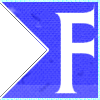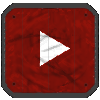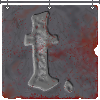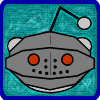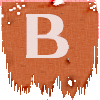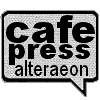A
Admin: a high level God that helps administrate the game, and may have other duties such as building. Admin gods typically cannot be ignored by players.AFK: acronym for 'Away From Keyboard'. Can be set as a flag.
Alias: a player-set command that substitutes for another command or a series of commands. Also called a macro. Uses for aliases include equipment changing and directions to areas.
Alter Shadow: the building port of Alter Aeon.
Avatar: a mortal player that has the limited ability to administrate the game. Avatars can silence players for a limited period of time as well as ban players from a small number of public channels, such as gossip and auction.
B
BBL/BBS: acronyms for 'Be Back Later' and 'Be Back Soon', respectively.Blaster: a member of a group that casts offensive spells.
Bleeder: the person in a group that is meant to take the hits from aggressive mobs before the tank can rescue them. Bleeders should not be sneaking or invisible, should have low charisma, and/or should be the last one in the room before attack commences. This person is said to be on bleed.
Bleeder Set: an equipment set worn by someone wishing to absorb damage on purpose, usually to acquire more experience points (bleeder xp). This usually means bad AC.
Bleeder Tank: a tank with lots of hitpoints and not much armor. The purpose of a bleeder tank is to be able to absorb huge amounts of damage in battle, thereby boosting the experience that the group gets at the end of the fight.
Board 7: the main message board for player-player communication on Alter Aeon. Named after the room its in, room 7, directly up from The Temple of Dentin in Ralnoth.
Board 8: the main message board for player-admin communication on Alter Aeon. Named after the room its in, room 8, directly south of room 7.
Boot Only: also called reboot only; a mob, piece of equipment, or a deed that is only available once after a reboot.
Bot: a program that automatically inputs commands without the player needing to manually type them. Bots can range from the very simple to the exceedingly complex, and involve triggers, timed command inputs, or a combination of both. They are often used to accumulate experience or items while the player is not actively playing. Alter Aeon has specific Bot Rules governing bots as well as sophisticated code to make them much less useful than on other MUDs.
Bport: short for builder's port. Alter Aeon's building port is called Alter Shadow.
BRB/BRT: acronyms for 'Be Right Back' and 'Be Right There', respectively.
Bug: A bug in the game is when it behaves in some way it is not supposed to. You can use the 'bug' command to report bugs. Exploitation of bugs without reporting them is against the rules.
Built Equipment / Built Eq: Equipment that does not load per se, but is assembled by mobs from one or more components.
Builder: a low level god responsible for building or maintaining a small number of areas. Builders generally have very little administrative power and can be ignored by players.
C
Cap: the maximum amount of experience you get for a normal mob kill. Caps are determined by a players total levels. Experience caps also apply in certain other case, like potion brews. See also 'doublecap'.Cast level: the level at which a spell is cast. Cast level is determined by the level of the player (mage level for mage spells, cleric level for cleric spells) and by equipment worn. Two pieces of CAST_LEVEL 1 equipment are needed to raise casting level by 1, while one piece of CAST_LEVEL -1 equipment will reduce cast level by 1. Cast level equipment only allows you to cast spells at a higher level - it does not allow you to learn higher-level spells at lower levels.
Caster: the mage and cleric classes. Blasters, healers and spellers fall under this category.
Caster Set: a set used for casting spells, usually mage spells that are level dependent but sometimes cleric spells as well. Mainly high clevel, but cast ability, int, wis, mana, and mana regen are also helpful. Also the set used by blasters in a group.
Clevel: shorthand for cast level.
Client: the PC or Mac program that the player uses to log on to the mud. PC users can use the custom Alter Aeon client, or a number of general mud clients like Zmud, Gmud, etc. A popular client for Mac is Savitar.
Composite: a building term referring to the maximum allowable combination of attributes on a piece of equipment.
CR: acronym for corpse retrieval, or attempting to recover eq or gold left behind in one's corpse after having been killed.
D
DClient: the custom Alter Aeon client, available at the Alter Aeon Downloads web page.Dented: the process by which a piece of equipment, or skill, or spell is reduced in power or usefulness. Similar to 'nerfed' in other games.
Dinged: see 'Dented'.
DND: acronym for 'Do Not Disturb'. A player that ignores all other players.
Doublecap: mobs that are not killed often or are relatively new may grant double experience the first time you kill them. This double experience is limited to double the normal exp cap. See also 'doublecap'.
Dproc: this refers to a special effect or attack created by a builder. Dproc is short for the programming term 'D-language special procedure'.
E
Enchantable: a piece of equipment that can be enchanted using the enchant weapon or enchant armor spells. These items cannot have any affects, cannot be type magic, and cannot be hum or light flagged.EQ: command abbreviation for Equipment.
Equipment Set: a set of equipment designed to have a specific purpose or specialized set of attributes. For a listing of some common equipment set types, see our article on Specialized Equipment Sets.
Exp: abbreviation for experience (points/level), a representation of your character's experience
F
Farming: the process of acquiring a large amount of gold or useful items by repetive gameplay.Flags: usually refers to the attributes of an object, but can also refer to attributes of a channel, room, or player. Object flags include hum, light, glow, floating, artifact, rare, evil, good, anti-evil, anti-neutral, anti-good, invisible.
Fight String: the short name of a player or mob that is visible when they are in battle.
Fighter: The warrior and thief classes. Hitters, tanks and stabbers are usually fighters.
Flaming: shouting derogatory or accusatory comments directed toward another player or players, frequently with the use of swearing and capslock. Players flaming one another for a prolonged period of time is called a 'flame war'. Especially provocative statements intended to goad another player into a flame war is called 'flamebait' or just 'baiting'.
Force: The process of getting an item to load. Usually requires killing the mob that ordinarily loads the equipment in the hopes that when the area repops, the mob will have the piece of equipment.
Force: builders can 'force' or 'puppet' monsters to control them, often for quests or special system events. Only admin gods can 'force' or 'puppet' players.
Fountaining (pk): term used for when a player summons another player in order to attack and kill him. Named after the fountain at Dark Temple Square in Ralnoth, which is popular spot to perform such actions.
Fountaining (age): term used when a player drinks from the fountain of youth to reduce age.
FTW: acronym for 'For The Win'.
G
Gamlin: a reference to an old mortal player that was widely viewed as an abusive annoyance character. Example usage might be "don't be a Gamlin" or "looks like he's pulling a Gamlin". Often used as either an insult or to warn people of obnoxious behaviour.God: an immortal player who helps run the game and/or contributes to its success. Gods include the Creator (Dentin), admins, programmers, and builders. For a list of gods, see the Alter Aeon Pantheon of the Gods web page.
Griefer/griefing: term used when a player (the griefer) harasses another player, often by underhanded means. Griefing is against the rules.
Grinding: the process of gaining experience points or other items in a repetitive, often unchallenging and non-entertaining manner, in order to improve and strengthen one's character.
Ground String: the description of a player or object that is visible when entering the room or with the "look" command.
H
Healer: a member of the group that heals people whose hit points have been reduced. This person also often refreshes people's movement in battle. Healers usually wear regen equipment.Highbie: a derogatory term for a player that is relatively high level but does not know as much about the mud.
Hitter: a person in a group whose role is to physically damage the mob.
Hitter Set: an equipment set that maximizes hitting ability (dieroll, hitroll, damroll, attack speed) at the expense of armor class. Useful in groups with a division of labor, with a designated tank.
HP: hit points, a representation of your general health.
I
IC: stands for In-Character. See 'roleplaying'.Idle: Doing nothing. Sometimes a player idles involuntarily because they are lagging, other times they are afk or botting. Also an in-game command.
IMHO/IMO: acronym for In My (Humble) Opinion. Dentin likes to use this one a lot.
Imp: abbreviation for Implementor. In Alter Aeon, this generally refers to Dentin, but may describe any of gods at any given time.
Insult String: the list of all keywords of an object or mob. Called an insult string because the list is visible by using the insult command on the object or mob. Keywords are also available using the identify spell.
J
Jaws: a commonly used screen reader for PCs.K
Karma: a numerical value that rises when player killers attack another player killer. Higher karma causes progressively more severe consequences during gameplay.Keywords: the names for an object or mob that is needed to interact with the object or mob. Keywords usually but not always correspond to ground strings or short descriptions.
Killstealing: A player attacks a mob that another player is already fighting and lands the killing blow, awarding the experience to the wrong player. Killstealing is against the rules.
L
Lag: a delay in game action, due most commonly to internet congestion but sometimes due to client or server slowdown.Loading: a piece of equipment that can still be obtained on the mud, as opposed to old or non-loading equipment.
LOL: acronym for Laughing Out Loud.
Long Description: the description seen when looking at an object or player.
Lurking/Lurkset: lurking is staying in particular area for a long period of time. Areas that won't repop mobs and/or objects while a player is lurking there are said be 'lurkset'.
M
Magic Resistance: also called MR, is a stat that determines the chance that any spell cast on the target will succeed. If the target has 100 MR, spells will always fail on the target. Note that all spells, with the exception of entangling roots, are subject to magic resistance, while save spell affects only a subset of spells.Maxload: The count of items present on the game above which the item will not load. For example, if an item is maxload 6, and 6 are being carried by players currently logged onto the game, that item will not load.
Metagame: In mud terms, metagame refers to in-game commands that do not directly affect gameplay. This includes using channel communication, auctioning eq, statistics commands, setting flags and the like. The term 'metagaming' is also used to describe the opposite of 'roleplaying'.
Mob: short for Mobile, a non-player character (NPC).
Mob Wear Set: items with negative stats that are given to mobs who automatically wear equipment, in order to make the mob easier to kill.
Move: short for movement, which represents how exhausted your character is. Also an in-game command.
MR: abbreviation for Magic Resistance.
Mudflation: continuous devaluation of gold in MUDs or MMOs caused by a badly designed gold or money system. Alter Aeon handles this via a feedback control system using offsets. See also 'offset'.
Mule: a storage character.
N
Newbie: Term used to describe a new player and, as an adjective, refers to any ignorant behavior. Everyone is a newbie when they start, but newbieness generally wears off in time as players learn more about the game.Nogc: short for no groupcasting, a command that prevents participation in a group cast.
Noload: refers to a piece of equipment that no longer loads, or no longer loads with the same stats.
Nonorm: refers to a weapon that does non-normal damage. Some mobs are resistant to so-called normal, physical damage, but may be vulnerable to non-normal damage.
NPC: Non-player character, also called a mob.
O
Offload: to remove an item from the game, often by giving it to a storage character. The purpose is usually to increase the odds of the item loading in the game, perhaps by forcing it.Offset: a numerical value intended to add balance to game play. Offsets adjust based on changes in the game. For example, if an excess of gold is present in the game, the gold offset decreases, resulting in less gold from corpses and stealing.
Old Style: refers to a piece of equipment that no longer loads, or no longer loads with the same stats.
OOC: stands for Out-Of-Character. See 'roleplaying'.
OOM: stands for Out-Of-Mana. This is usually a warning for fellow group members that the person, usually the healer, will no longer be casting spells due to lack of mana.
Overrare: Refers to a piece of equipment that is very unlikely to load because it exceeds its rarity value; that is, more of the equipment is on the game than allows it to load.
P
Percent Load (% Load): the odds, in percentage, that an item will load in the game. %load can be combined with, and is overridden by, maxload and rarity.Perma: short for permanent enchant, a piece of armor that has been enchanted, but no longer holds the enchanted flag, so that the enchant will not wear off over time.
Pet: a special type of mob that follows its owner, often providing some sort of aid. Some types of pets can even respond to commands.
Player Shop: a shop operated by players instead of mobs.
PK: acronym for Player Killer/Killing. Players can kill one another using the pkok command or in pk arenas. Killing players by other means is illegal.
PPK: acronym for Permanent Player Killer. These are players that have player killing as a lifestyle, and can kill each other ad nauseum. Do not go ppk until you are no longer a 'newbie'.
Prompt: a customizable string of information that appears before the player command imput. Prompts can be customized to indicate the player's hit points, mana, and movement, the condition of mobs in battle, etc.
Puppet: builders can 'force' or 'puppet' monsters to control them, often for quests or special system events. Only admin gods can 'force' or 'puppet' players.
R
Rack: an area. Gods and builders usually use this term.Random: a piece of equipment that has loaded or been enchanted with abnormal stats.
Ranko: a reference to an old mortal player that discovered game bugs and then attempted to exploit them for personal gain.
Rarity: an internal stat used in the game to determine if an item loads. Some equipment has rarity associated with it, and if the average number of that piece of equipment exceeds its rarity value, the item is extremely unlikely to load. That item is then said to be overrare or over rarity. Note that rarity is a value averaged over time, as opposed to maxload, which refers to the exact number of the object on at a particular time.
Reader: a program that translates text to speech and is used by blind players. Also called a screen reader.
Reboot Only: a mob, piece of equipment, or a deed that is only available once after a reboot.
Regen Set: the set used when regenerating (regenning) stats. Usually used when sleeping, but also used by the healers and spellers in groups. Regen sets usually focus on mana regen, so + mana regen is important, along with int, wis, clevel, and even +age. +hp regen is occasionally included.
Repop: a reloading of the mobs and, usually, objects in an area.
Respawn: see Repop.
Restore: Gods can expend effort to instantaneously raise a players' hp, mana and movement to their maximum. This is called a 'restore'.
ROFL: acronym for Rolling On the Floor Laughing.
Roleplaying: Playing your character in keeping with its in-game persona. Your character might look or speak a certain way and you attempt to keep consistent with your role whenever possible.
Room Description: the description of a room visible when the player first enters a room or uses the 'look' command. In brief mode, room descriptions do not appear.
RTFHP/RTFM: acronyms for Read The Fine Help Page(s) and Read The Fine Manual, though the word fine is sometimes replaced with another word that starts with the letter 'F'.
Run: A 'run' describes goal-orientated gameplay, often in groups. The term 'run' is used with an adjective to define the goal, and can be used alternatively as a noun or verb in this fashion. For example, a player who wishes to gain more experience would say that he is wants an 'xp run' or is going to 'run xp'. Players run experience, gold, equipment, quests and corpse retrievals, among other things.
S
Saving Spell: A stat that reduces the effectiveness of spells cast on the target. It will reduce the damage of attack spells, and reduces the chance that offensive affect spells (nox, faerie fire, lethargy, summon, charm, etc.) will work. Protective and healing spells are not subject to save spell. This is opposed to the magic resistance stat, which reduces the likelihood of any spell (damage, protective, healing, etc) working at all on the target.Screen Reader: a program that translates text to speech and is used by blind players.
Short Description: name of an object as it appears in your inventory, in a container, or in a shop.
Social: a series of whimsical commands that are for entertainment purposes and do not directly affect gameplay.
Solo Set: an equipment set suitable for solo experience or exploring, balancing hit/dam with low AC.
Spam: long blocks of (often unreadable) text. Sometimes spam is unintentional, such as when a large group of players enters and then leaves a room. Intentionally spamming another player by use the tell command or other means is generally frowned upon. The in-game spam filters can help reduce spam.
Spam Filters: filters that can be toggled to reduce text output of the game, with the tradeoff of less information.
Speller: a member of the group that casts protective spells or other helpful spells in the group. Usually the speller wears high mana regen or clevel and can serve as a backup healer.
Stabber: a person in the group who starts combat with a backstab of the target mob.
Stabber Set: an equipment set that maximizes damage when backstabbing. This includes a high dieroll backstabbing weapon and high damroll bonus.
Storage Character: (see also 'mule') a character whose sole purpose is to store items off of the game.
String: a fancy term for a series of words. Types of strings ground, fight, long, short, room, and insult strings.
Summoner: a player whose role in a group setting is to summon other group members out of danger and/or summon players back to the area after they recall.
Supercap: also called double cap, any amount of experience that is greater than the normal experience cap. Supercaps can be obtained by killing mobs that have not been previously killed by someone of equal or higher level, and by killing mobs in bonus experience areas (listed in the area exp command.)
T
Tank: the person in a group meant to take the most damage in battle. The tank makes sure that the mobs are targeting them using the tank and rescue skills.Tank Set: an equipment set meant to minimize damage. Commonly this is a set with very low armor class (AC), but dodge, parry, and high hit points are also helpful. Specialty tank sets for casting mobs are also used in certain circumstances.
Tensor: A weightless container that is created with a spell and has limited duration.
Trigger: a small program set up to give a specific response (output command) to an input (game text). Some common examples are a trigger that will automatically re-wield your weapon when you are disarmed, or a trigger that will keep you logged in when an inactivity disconnect notice is given. Triggers are set up through your client.
Trolling: attempting to provoke another player through words or actions. See 'flaming'.
Turn Undead: a powerful cleric skill used against undead monsters such as vampires and zombies. The phrase 'turn undead' originates in the phrases 'turn the undead to dust', 'return the souls of the undead to the underworld', and 'turn away the undead'.


